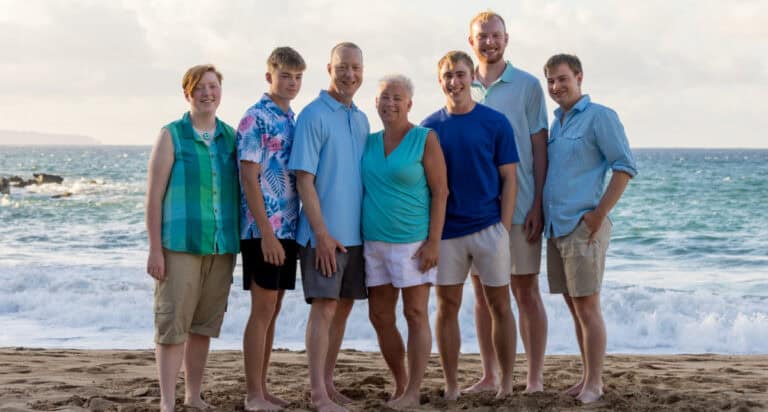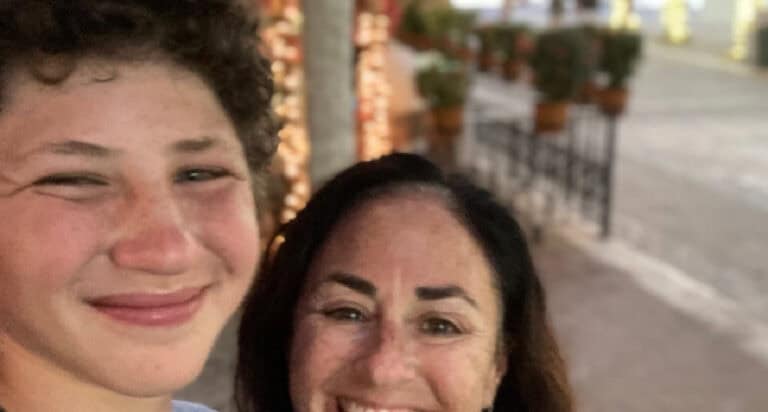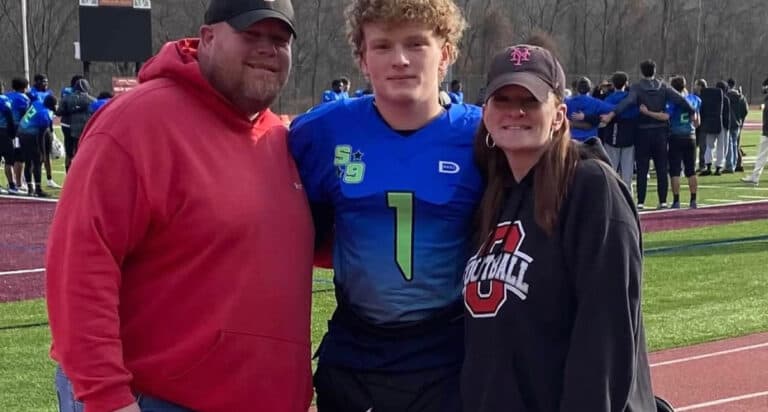When we began the process to adopt my daughter Olivia from Guatemala in 2002, we never considered open adoption. Why would we? No one mentioned it—not our agency, not our social worker, not our in-country facilitator. I hadn’t known it was possible.

Over the course of my life, I’d been close with people who are adopted—including two cousins—and not one had met their birth families. I’d never heard the subject discussed.
During my daughter’s adoption, I wondered about her biological parents
Then, during Olivia’s adoption, which went on for nearly two years, I quit my job in San Francisco and moved to Antigua, Guatemala to expedite the process. We lived together in a small rental house, and sometimes I’d stare at my beautiful daughter and silently question, “Who made you? What’s her story? Does she know where you are?”
Occasionally, at the market or on the street, at a restaurant or church, I’d see a woman who closely resembled Olivia, and I’d be seized by a mixture of curiosity, fear, and elation as I wondered, “Are you my daughter’s mother?”
After six months, our adoption was finalized and Olivia and I settled into our home in California. Soon after, my husband and I adopted our son, also born in Guatemala. Wanting to stay connected to our community, I joined an online group of adoptive families.
It was there I learned about “searchers”—Guatemalans who connect adoptive parents with birth families through searches conducted with discretion. Although searching for birth family in Guatemala and other countries was more complicated than in the United States, it definitely was possible.
At the same time, I was writing a memoir, Mamalita. For research and from interest, I read Nancy Verrier’s The Primal Wound and Sherrie Register’s Twenty Things Adopted Kids Wished Their Adoptive Parents Knew—influential and seminal books in the adoption world—as well as countless memoirs, articles, and posts written by adoptees and birth mothers.
People have an innate desire to know their biological roots
My reading confirmed what I suspected: that human beings possess a deep-seated need to know their biological mothers, to connect with their roots and know who shares their blood. I came to believe that the drive to reunite is the core issue of adoption, one that never goes away. Reunion seemed to be the only way to provide closure.
Every family makes decisions that are right for them, and in most current domestic adoptions, that decision favors open adoption. International adoption is different. Some say the decision to reunite should be left up to the person who is adopted, who deserves this agency after having none in the adoption process. Others say to search as soon as possible but hold onto contact information until a child turns 18.
I couldn’t wait that long. The memoirs and posts I’d read by adoptees and birth mothers were filled with longing for reunion, a visceral and raw need to reconnect. I saw no benefit to keeping my children separate from their other mothers.
My children know their genetic history
We searched for and found each of my children’s birth mothers when my kids were seven years old, during latency, before puberty and real identity issues kicked in. We’ve been in reunion for more than 10 years and are lucky because we’re able to travel to Guatemala every summer to visit.
My children don’t have to wonder if their mothers love them because they feel their mothers’ love. They don’t have to wonder where they were born because they know the place. They know their siblings and who they look like, which is everyone in their family and nothing like my husband or me. They see their personalities and talents reflected. They’re aware of their health histories. This accumulated knowledge seems to ground my children and give them comfort and reassurance.
Opening our adoptions hasn’t solved every challenge intrinsic to being an adoptive family, but in an unexpected way, it has brought us closer and made us more honest with one another. Maybe because we’ve shared experiences that feel profound, we don’t back away from hard subjects or prickly conversations because we’re confident we can handle them.
I now know how my kids feel about a lot of important issues
For example, I know how my kids feel about being relinquished and placed for adoption, about growing up in California. About what they left behind and what they’ve lost. What they have here and what they cherish. We talk about race, and how it feels for them to walk through the world as people of color, versus the way I walk through the world cloaked with white privilege. How my daughter identifies as indigenous, which is different from how my son identifies, as Latino or Hispanic. How they both identify as Americans and Guatemalans.
My kids are now young adults, and in the future, the relationships they have with their birth families will be their own. I’ve tried to create a solid foundation for them to build on. Time will tell.









